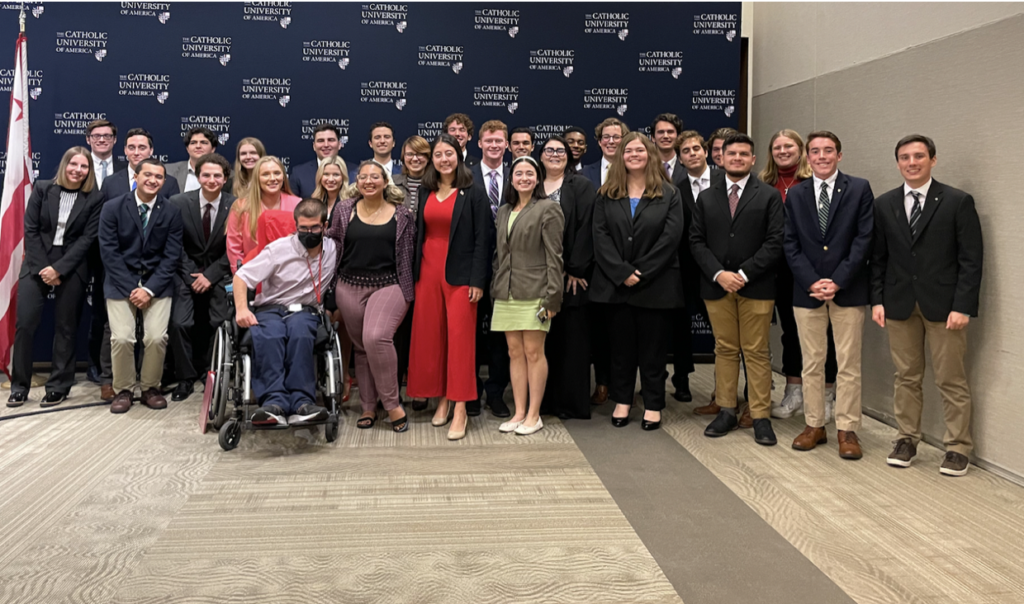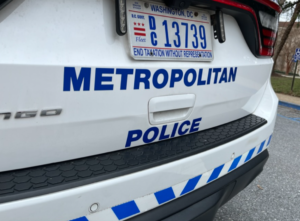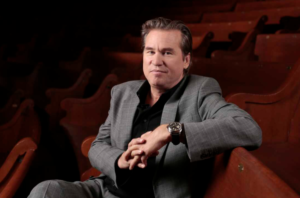The Last Senate Meeting of Fall 2022: A Bill and Three Resolutions Passed

Image Courtesy of The Catholic University of America
By Chanel Cole
All were in high spirits for the final senate meeting of Fall 2022 that took place on December 5 in the Caldwell Auditorium. VP Fahey started the meeting off by leading the pledge, which was followed by a prayer led by Senator Bert. Roll call took place and 23 senators were in attendance.
The senate then transitioned into public comment where members of the CUA community could extend their support for legislation being brought to the floor. First up was Reagan Budasi, a freshman social work major who praised Resolution 020, which seeks to improve pedestrian safety in the Flather Hall area. As justification for her support, she retold a story of how she almost got run over by a priest in that area. Ines Quirogam, a freshman business major, agreed. A sophomore American politics major supported Resolution 021, pertaining to the expansion of accessibility of spiritual resources on campus. He emphasized the spiritual development of the whole person. Another Resolution 021 supporter was President of the Theology Club Michael Ellison. Finally, Karla Gunera reminded all attendees that the last treasury board meeting of the semester would take place Tuesday, Dec 6 at 8:15pm.
Once all the introductory senatorial procedures were complete, the first item on the docket, Bill 003, launched onto the floor. Sponsored by Senator Besendorfer and cosponsored by Senators Curioso and Michels, this bill sought to codify the unwritten precedent that legislation ought to have only one primary sponsor and an option to have cosponsors. After VP Fahey introduced the bill, Senator Besendorfer had the floor. She explained that the practice of having only one primary sponsor had been used since the establishment of the Student Government Association eight years ago. Besendorfer emphasized the importance of having one clear figurehead of resolutions and bills, with her main point being that these efforts aim to avoid future confusion.
After Senator Besendorfer’s synopsis of the bill, debate ensued. Senator Henriquez expressed his distaste for the bill. He stated that he would vote against the bill and explained that he did not see the importance and that he believed the bill was not drafted for the betterment of the senate and the general student body. He also affirmed that the drafting of the bill undermines the collaborative nature of the senate. Additionally, Senator Henriquez questioned the timing of the creation of this bill to which he and fellow School of Nursing Senator Musick are both sponsors of their resolution.
Senator Besendorfer responded by stating that there are no by-laws that require senators to share their work with others. She agreed that it is important to collaborate with other senators, but that does not mean that one is obligated to share their projects with everyone. As to the timing of the bill, Besendorfer alluded to other reforms made to procedures only this semester, like the publicizing of attendance records. According to her, the bill is meant to codify an unwritten rule in existence since SGA’s founding and nothing else.
Cosponsor Senator Michels explained the role of the cosponsor, which is where he believed misunderstandings originated. He explained that cosponsors, despite not being primary sponsors of a legislation, can still play an active role in the creation of a bill or resolution. Senator Besendorfer raised a fundamental question: if the bill does not pass, then where does it stop? Will there be three sponsors, four? She highlighted the significance of recapturing the meaning of a cosponsor and also extended a proposal to establish a bill to affirm a clear definition of a cosponsor. Senator Curioso chimed in and added that for logistical reasons, it would be much easier to have only one primary sponsor.
After this, Senator Kish gave his support for the bill. He used the analogy of group projects and how having one clear leader establishes accountability, which is especially important when things do not turn out well.
Senator Musick expressed her concern that the intentions behind this bill were not coming from a good place. Senator Musick claimed that Senator Besendorfer was the only one who took issuance with their bill and, rather than approaching her and Senator Henriquez, drafted this legislation. According to her, it seemed as though Besendorfer purposely denigrated their resolution by bringing this bill to the floor the very same night.
After this, VP Fahey interjected to remind her to be courteous and respectful.
Besendorfer responded that she expressed her dissatisfaction with their resolution having two sponsors prior. According to her, many bills were never shared last year in SGA. Senator Besendorfer reiterated that the bill was not meant out of spite, but rather to uphold senate procedure. Senator Michels added that this legislation in no way denigrates their resolution, because the bill will not be active until it’s signed. It will not matter for this meeting that the resolution has two sponsors, but if passed, in future meetings, it will.
Upon that, a motion to vote was passed. Bill 003 was passed with 18 yays, 4 nays, and 1 abstention.
The meeting resumed with Resolution 019, sponsored by Senators Musick and Henriquez and cosponsored by Senators Curioso and Suarez. This resolution pertains to the installation of baby-changing stations in men’s bathrooms, which is in line with CUA’s pro-life, pro-family stance. It is part of the Guadalupe Project that the university is already working on as a response to the Dobbs decision.
Senator Musick stated that with the Guadalupe Project in the works, there has already been an initiative to install these baby-changing stations; by passing this resolution, it will show SGA’s solidarity with those who are caretakers of babies on campus. The goal is to install about 60-80 changing tables to campus in the Pyrz, Garvey Hall, and Father O’Connell Hall. This would create a more welcoming space for male parents according to Musick and she emphasized prioritizing the safety of all children that come to campus.
Senator Henriquez added to this sentiment by pointing out that there are no baby-changing tables in the Pyrz. He cited that in New York, all public buildings are mandated to have changing stations and family stations for anyone to use. Henriquez stated that this is paramount, especially since there are instances when the father is the sole caretaker of a child.
Senator Curioso affirmed that when he checked there were no changing tables in the Garvey men’s room.
Senator Martin asserted that last year she brought up a similar resolution that advocated for the installation of changing rooms in women’s restrooms that were missing them, and wanted to know if that was still in the works.
Senator Musick responded that Facilities had not given her answers to that end; with the opening of Garvey Hall and the Opus Prize, administration has been busy and perhaps that has delayed their efforts.
Senator Besendorfer asked if the cost of a changing table had been looked into. Additionally, she sought an explanation as to why Garvey Hall would need a baby-changing station.
Senator Musick’s response was that the prices of baby-changing stations vary from as low as $133 to as high as $1400. She reiterated that the university has already shown a willingness to go through with this course of action and that the passing of this resolution would expedite the progress. As to why Garvey Hall was selected, Musick stated that the Pyrz workers bring their kids to work often, and it will be more accessible to them. Furthermore, since Garvey Hall is a new feature of campus, it will become a public attraction for prospective students and families. On tours, many parents will bring small children and a baby station would be convenient there.
Senator Drauschak asked if Senator Musick was considering adding a baby-changing station to the gender-neutral bathroom in the Pryz. She replied that she was not aware that it existed and from his description of its location, it seemed like it was in a discrete area. Senator Bubel said that the bathroom may not be the best for the general public to use.
Upon this, a motion to vote was made and the resolution was passed with 21 yays, 2 nays, and 0 abstentions.
The proceeding item on the docket, Resolution 020, sought to improve pedestrian safety on Flather Hill. It was sponsored by Senator Bert and co-sponsored by Senators Curioso, Bubel, Drauschak, Kruger and Suarez. The resolution posits that since the green space is commonly used by students, safety here is paramount. There are also many vehicles that go over the speed limit in this area. Resolution 020 calls for the establishment of knockable pillars to protect pedestrians while a walkway is being built.
Senator Bert stated that he met with DPS and found out that they had been monitoring the area since last year due to ongoing safety issues. They already have plans to build a parallel path and by passing the resolution SGA would be showing their support.
Highlighting the importance of this resolution, Senator Curioso shared his experience of wheelchairing to St. Vincent’s Chapel for mass. The steep hill proves a challenge for him going upward. Senator Drauschak reminded everyone that any accidents would leave the school liable for a lawsuit and stressed the importance of student safety above all.
From his own experience of living in the Flather area for two years, Senator Kruger attested to the fact that non-campus vehicles such as Uber drivers, delivery drivers, and some CUA students can enanger students.
When the resolution was passed to floor for debate, Senator Downing immediately affirmed that he was voting no for the resolution as he believed that the pillars would pose an emergency and safety violation.
Senator Bert’s responsed that the pillars will not be driven over and give the illusion that they cannot be when in reality they can. Emergency vehicles will know that the pillars can be driven into and do so when necessary.
Senator Foley asked if golf carts could drive over these pillars, to which Senator Bert affirmed.
After this, Senator Besendorfer explained that she would vote against the resolution, particularly because of the pillars. Her worry is that emergency vehicles may not notice that the pillars are knockable; she suggested placing signs in that area instead.
Senator Bert commented that he thought about signs, but their effect is not enough for him based on their failure to improve pedestrian safety in Centennial Village.
Senator Bommer was concerned about how new students and their parents would navigate their vehicles on campus for orientation. Bert replied that the pillars are easily navigable and were only a temporary solution until the pedestrian path is built. Senator Drauschak also added that there are other roads around campus for cars to drive on. Senator Musick suggested popping the pillars down and popping them back up after orientation.
Senator Corey stated that he failed to see the purpose of the pillars if the construction for the path will be built anyways and Senator Bert reminded him and the other senators that the pillars were only temporary.
Senator Martin asked if there was a scheduled date for the pedestrian sidewalk and Bert responded that it would hopefully be finished before students return for Fall 2023.
Senator Downing asked how much the project would cost; Senators Drauschak and Bert replied that they cannot put a price on safety.
Subsequently, a motion to vote was made and the resolution passed with 18 yays, 5 nays, and 0 abstentions.
The final resolution of the night and of the fall semester, Resolution 021, sought to increase access to Catholic spiritual resources on campus. There is no centralized location for resources such as mass, prayer services, and rosaries. Additionally, Caldwell Chapel is closing down for renovations and it is important that students know alternative worshipping centers on campus and the times they operate. To achieve this goal, sponsor Senator Foley and co-sponsors Senators Corey, Ewing, Tamayo, Suarez and Curioso seek to distribute magnets that have all this key information written on them.
Senator Foley started by stressing the Catholic identity of the university, which is central to its mission. Campus Ministry (CM) runs masses, provides students with prayer cards, and online spiritual resources amongst many things. CM has created these magnets for the student body in the past, but has not this year. This resolution seeks to reestablish that practice.
The resolution was sent to the floor for open debate and Senators Martin and Kish extended their full support of the resolution.
Senator Musick was concerned about the logistics of the distribution of those magnets. She wanted to know who would take on the responsibility of such a task.
His reply to this was that the metal doors in CV would allow for fairly simple and swift distribution. Additionally, mini-fridges within the dorms are also a fitting location for the magnets, according to Senator Foley. It would be a great opportunity for student ministers and house ministers to get to know their residents by knocking on their doors with the magnets.
A motion to vote was passed and the resolution was passed unanimously, with all 23 senators in favor.
To conclude the meeting, Fahey reminded all the senators to leave egos at the door and remind themselves why they were there in the first place: to serve the student body. She also praised the public commenters for the night and for the secretaries of SGA who have been the backbones of the organization.
Open floor arrived and senators shared any ideas they had for future legislation. Senator Curioso wants to place epi-pens in dining hall facilities. Senator Suarez is working on a resolution to improve the experience of mail-in ballot voting on campus. Finally, Senator Besendorfer is working with Dean Love and Cardinal Closet to facilitate a business clothing drive in Maloney Hall.







